
California Has Been Devastated by the Climate Crisis
Reposting from CalRecycle, https://calrecycle.ca.gov/organics/slcp/
California is now experiencing the effects of a climate crisis: hotter summers with world record-breaking temperatures, even more devastating fire seasons, more extreme droughts, and rising sea levels that erode our coastlines.
Scientists tell us that greenhouse gasses released by human activities, like landfilling food and yard waste, cause climate change.
To respond to this climate crisis, California is implementing statewide organic waste recycling and surplus food recovery.

Fighting Climate Change by Recycling Organic Waste
In September 2016, Governor Edmund Brown Jr. set methane emissions reduction targets for California (SB 1383 Lara, Chapter 395, Statutes of 2016) in a statewide effort to reduce emissions of short-lived climate pollutants (SLCP). The targets must:
- Reduce organic waste disposal 75% by 2025.
- Rescue for people to eat at least 20% of currently disposed surplus food by 2025.
Landfills Are Third Largest Source of Methane in California
Organic waste in landfills emits:
- 20% of the state’s methane, a climate super pollutant 84 times more potent than carbon dioxide.
- Air pollutants like PM 2.5, which contributes to health conditions like asthma.
Organics like food scraps, yard trimmings, paper, and cardboard make up half of what Californians dump in landfills.
Reducing Short-Lived Climate Super Pollutants like organic waste will have the fastest impact on the climate crisis.
SB 1383 Regulations
The Office of Administrative Law approved SB 1383 regulations.
- Final Regulations Text (Accessible Version)
- Final Statement of Reasons
- Final Statement of Purpose and Necessity
- Final Comments and Responses
- Final Environmental Impact Report
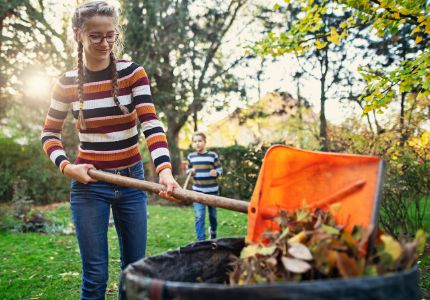
Collection and Recycling
Starting in 2022, all jurisdictions will to need to provide organic waste collection services to all residents and businesses and recycle these organic materials using recycling facilities such as:
- Anaerobic digestion facilities that create biofuel and electricity.
- Composting facilities that make soil amendments
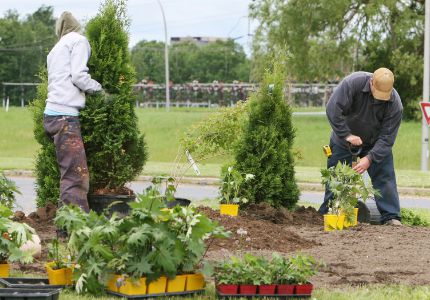
Procurement Requirements: Using Recycled Organics Products
As California collects and recycles organic materials, local governments will be required to use the products made from this recycled organic material, such as renewable energy, compost, and mulch.
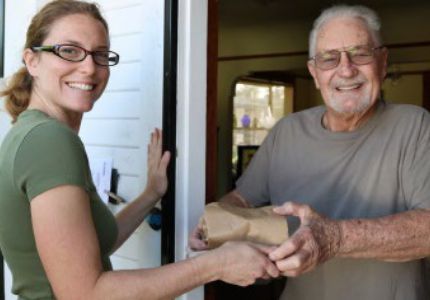
Food Recovery
Starting in 2022, some food service businesses must donate edible food to food recovery organizations with others starting in 2024. This will help feed the almost 1 in 4 Californians without enough to eat.
California has a 2025 goal to redirect to people in need 20% of edible food currently thrown away.
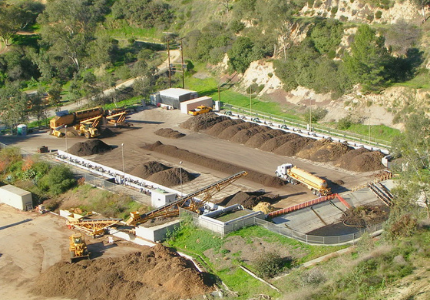
Capacity Planning
SB 1383 requires counties to take the lead collaborating with the jurisdictions located within the county in planning for the necessary organic waste recycling and food recovery capacity needed to divert organic waste from landfills into recycling activities and food recovery organizations.
California has a 2025 goal to redirect to people in need 20% of edible food currently thrown away.
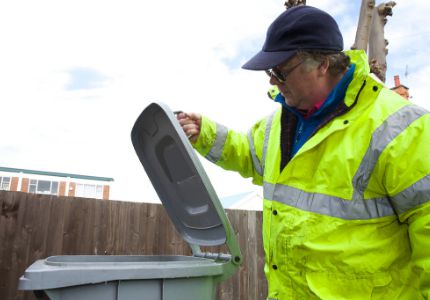
Enforcement
The enforcement provisions in SB 1383 will assist jurisdictions, non-local entities, local education districts, state, federal facilities, and CalRecycle to achieve the state’s climate goals and the 75 percent organic waste diversion goal by 2025 and into the future.

Recordkeeping Requirements
Regulated entities are required to maintain records that demonstrate how they are complying with the law. These records will assist regulated entities with preparing for compliance inspections required by local and state agencies.
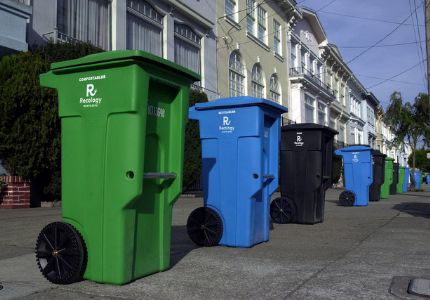
Department Issued Waivers and Exemptions
If certain conditions are met, CalRecycle may issue waivers and exemptions to jurisdictions, local education agencies, and non-local entities that exempt them from some or all of these collection requirements.

Reporting
Jurisdictions are to report on program implementation. CalRecycle has developed Model Reporting Tools that jurisdictions can use to assist in meeting reporting

Complaints
CalRecycle has developed a recycling services and edible food collection complaints portal where the public can file complaints for lack of recycling services, improper labeling of bins, and other solid waste concerns.
Resources for Implementation
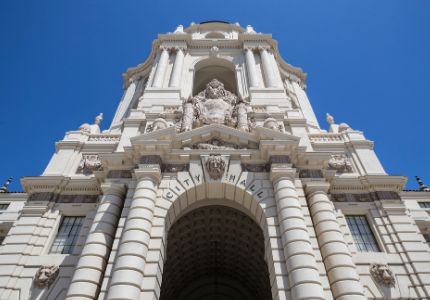
Jurisdictions
Requirements for city, county and special districts with solid waste collection.
Learn Moreabout

Education and Outreach Resources
CalRecycle offers resources to assist with education and outreach to jurisdictions, residents, and businesses.
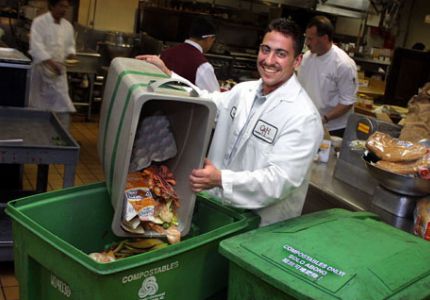
Food Donors
Californians throw away 5-6 million tons of food waste every year. SB 1383 requires that businesses donate surplus food instead of throwing it out.
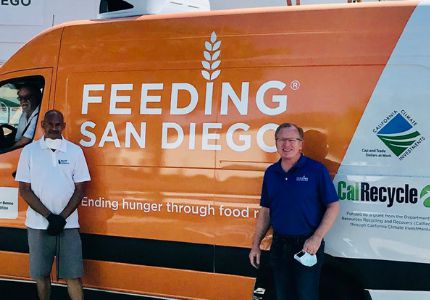
Food Recovery Organizations
SB 1383 links food service businesses with food recovery organizations to get donated food to Californians in need.
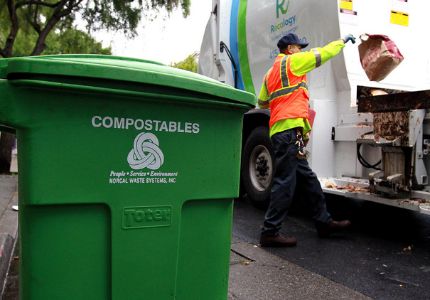
Waste Haulers
Each jurisdiction plans for and implements its own solid waste management programs, including organics recycling. Each local program is based on state minimum standards, including collection service options, container color and labeling requirements, and contamination monitoring. Hauler requirements at the local level vary depending on the type of hauler.
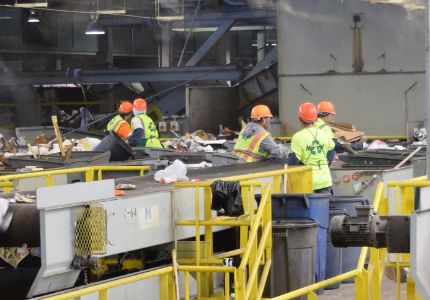
Transfer and Processing Facilities and Landfills
SB 1383 makes changes to Titles 14 and 27, adding requirements for transfer/processing facilities, operations for landfills and solid waste facility permitting.
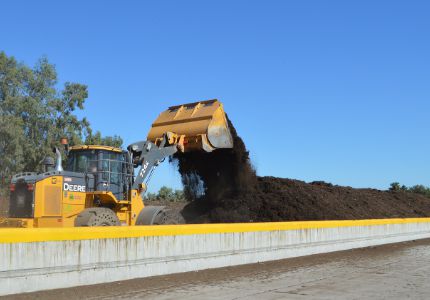
Organics Recycling Facilities
SB 1383 requires organic waste facilities and operations to measure and report organic waste material activity, including composting and anaerobic digestion.

Local Enforcement Agencies
Local enforcement agencies (EAs) have the primary responsibility to enforce State solid waste facility regulations designed to protect public health and safety and the environment.
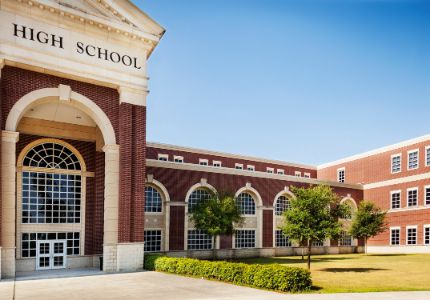
Local Education Agencies
SB 1383 regulations direct entities not subject to oversight by a jurisdiction to implement new organics recycling infrastructure, including, school districts, chapters, and county office of education.
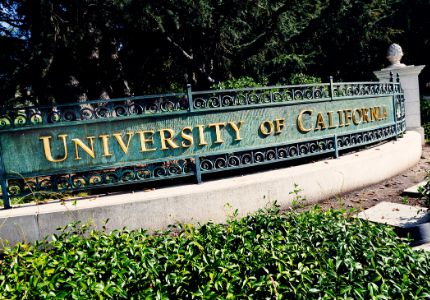
Non-Local Entities
SB 1383 regulations direct entities not subject to oversight by a jurisdiction to implement new organics recycling infrastructure, including, state agencies, county fairgrounds, public universities including community colleges, facilities operated by state parks system, prisons, federal facilities, and special districts.

Elected Officials
Every department within a jurisdiction will be affected by the implementation of SB 1383 and will have a role to play. Staff in every department will need to understand how SB 1383 impacts their work, and implementation may require adding staff or contracting with other entities, such as environmental health inspectors or consultants.
Related Resources
Reducing Short-Lived Climate Pollutants in California
The California Air Resources Board provides information on short-lived climate pollutants and the Proposed Revised Short-Lived Climate Pollutant Reduction Strategy.
General Plan Guidelines Update, Completed August 2, 2017
The California Governor’s Office of Planning and Research (OPR) completed the first comprehensive update to the General Plan Guidelines (GPG) since 2003. One of the major changes includes an expanded section addressing the need for additional recycling, anaerobic digestion, composting, and remanufacturing facilities in the land use element.
For more information contact: Organic Waste Methane Emissions Reductions, SLCP.organics@calrecycle.ca.gov




You must be logged in to post a comment.